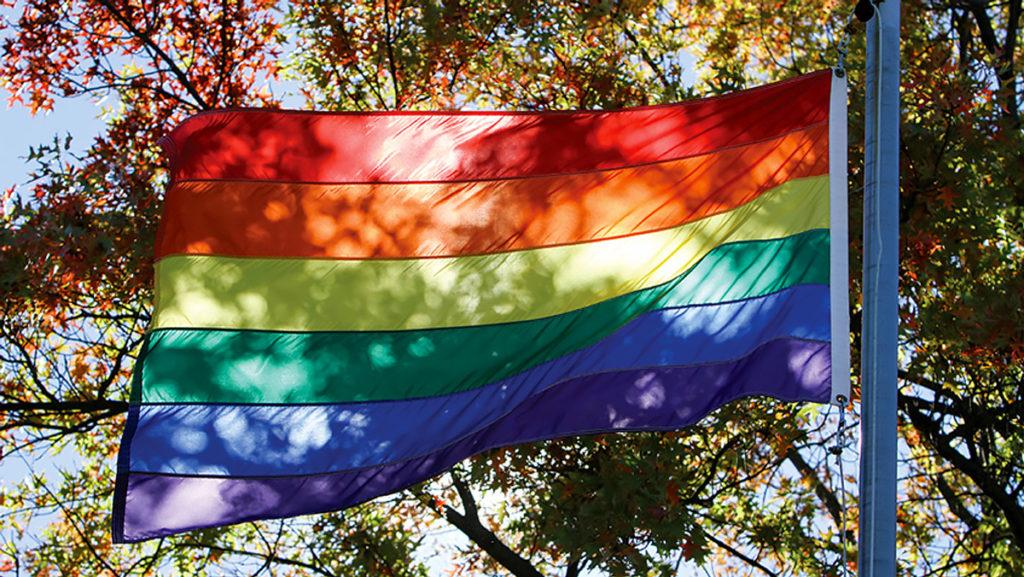This week the New York Times published an Op-Ed titled, “Is There Something Queer About Being Single?” in which the straight, white, cisgender author, Helen Betya Rubinstein, equates the social alienation of being single to being queer. Throughout the piece, she experiences social situations where her single status makes her feel “queer again.” Had this article discussed the ways in which being femme and single lead to alienation from straight monogamous spaces, it would have been an article worth sharing on my timeline.
Yet Rubinstein and the New York Times alike go one step further to say this momentary exclusion is, in fact, queerness itself. As a queer person, I know firsthand that these spaces were never built with me and my community in mind. From the moment I verbalized my divestment in heterosexuality and my undeniable attraction to queer and trans people, I was denied any entry into heterosexual spaces, regardless of my relationship status.
Where Rubinstein views queerness as the sadness of not being invited to a dinner party, I view queerness as a force that seeks to flip the dining room table on its head. In being queer, femme and nonbinary, I have much bigger issues to worry about than being excluded from spaces that I wouldn’t be invited to in the first place. In coming out as queer, I lost friends. I had to build and rebuild understanding with my parents and family. I still struggle with the ways in which my varying gender presentations lend themselves to visibility and vulnerability. Making friends with straight people is often sabotaged by their lack of respect for my humanity.
Almost everything about the outer world tells me and my fellow trans and queer family that we are not safe. Queerness is knowing people who have been killed for their identities. It’s panicking when you’re pulled over and your driver’s license doesn’t match your gender presentation, and it’s fearing for your life when someone calls you a “dyke” and spits on you at the straight bar. It’s getting the “be safe” texts from your parents while on your way to Pride and crying on your friends’ shoulders at vigils. It’s being told you’re “too much.” It’s having a vice president who’d like to kill you and queer ancestors who have been hunted throughout history. It’s making your own family filled with people who’ve survived conversion therapy, abuse and poverty due to their queer or trans identity. It’s surviving despite and because of who you are.
Furthermore, social alienation from straight people and culture continues to be a part of my experience regardless if I am in a monogamous relationship or not. Moving to new places results in months of finding people who respect my identity, let alone are my friends. Many dinner parties, let alone many casual outings among straight peers, do not have the space for my wide hips, my pink lipstick and my button-downs. When Rubinstein cites her perception that her single status is somehow more “queer” than a 50-year-old lesbian who Rubinstein asserts hasn’t felt queer in years, I think of the ways in which my queer elders fight for spaces in communities to seek a sense of normalcy. I think of the ways in which I often don’t speak about my oppression with straight folks, and the ways in which community care play into my definition of what queerness is.
Minutes after being posted, the New York Times article changed only the title to “Is There Something Odd About Being Single?” Perhaps even more offensive, this appropriation and subsequent shirking of a reclaimed slur that is, in fact, my identity, shows the extent in which Rubinstein and the New York Times do not actually know what queerness is. It is not a group of misfit quirky people who you can glom onto when you feel awkward. It’s a community of people with nonnormative genders, sexualities and romantic orientations; it’s a community based in survival. Queer people of all races, genders, abilities, classes and cultures have fought for their ability to survive and have built their own communities in order to thrive. We don’t exist for straight folk’s consumption. Certainly, few moments of insecurity or exclusion from a toxic system built on the violence and oppression of trans and queer people does not make you queer.














